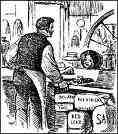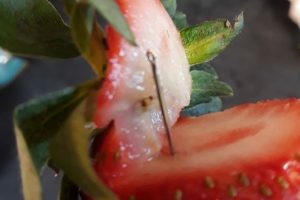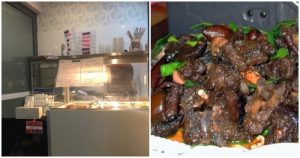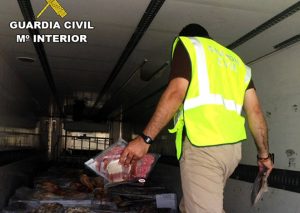Eric Schlosser writes in this New York Times review of Deborah Blum’s new book, “The Poison Squad,” that a now forgotten chemist at the Department of Agriculture, Harvey Washington Wiley, played a more important role — not only in ensuring the passage of the 1906 food safety bills but also in changing popular attitudes toward government intervention on behalf of consumers.
 In 1906 the United States was the only major industrialized nation without strict laws forbidding the sale of contaminated and adulterated food. In their absence, the free market made it profitable to supply a wide range of unappetizing fare. Ground-up insects were sold as brown sugar. Children’s candy was routinely colored with lead and other heavy metals. Beef hearts and other organ meats were processed, canned and labeled as chicken. Perhaps one-third of the butter for sale wasn’t really butter but rather all sorts of other things — beef tallow, pork fat, the ground-up stomachs of cows and sheep — transformed into a yellowish substance that looked like butter.
In 1906 the United States was the only major industrialized nation without strict laws forbidding the sale of contaminated and adulterated food. In their absence, the free market made it profitable to supply a wide range of unappetizing fare. Ground-up insects were sold as brown sugar. Children’s candy was routinely colored with lead and other heavy metals. Beef hearts and other organ meats were processed, canned and labeled as chicken. Perhaps one-third of the butter for sale wasn’t really butter but rather all sorts of other things — beef tallow, pork fat, the ground-up stomachs of cows and sheep — transformed into a yellowish substance that looked like butter.
Harvey Washington Wiley was born in a log cabin on April 16, 1844, a fitting entrance for an American hero. His father was a farmer and a lay preacher in southern Indiana who sheltered escaped slaves as part of the Underground Railroad. Wiley served briefly in the Civil War, studied medicine in Indiana and chemistry at Harvard, and became the first chemistry professor at Purdue University in 1874.
The deliberate adulteration of food had been a problem for millenniums, inspiring government regulations in ancient Egypt, Sumeria and Rome. By the late 1870s, the Industrial Revolution, applied to food processing, provided a variety of new techniques and ingredients useful for committing fraud — artificial flavors, artificial colorings, chemical preservatives. But simultaneous advances in chemistry also facilitated the detection of such fakery. At the request of the Indiana State Board of Health in 1881, Wiley began to study the authenticity of the honey and maple syrup for sale in that state. According to Blum, he used laboratory instruments like the polariscope to uncover that “a full 90 percent of his syrup samples were fakes … and there were ‘beekeepers’ who had not, of late, been bothering to keep bees.” Wiley’s findings soon appeared in Popular Science magazine, and his career as a public crusader was launched.
 After being named the U.S.D.A.’s chief chemist in 1882, Wiley spent the next 30 years at the department campaigning for safe food and proper labeling. He supervised a series of investigative reports that gained much public attention, warning about “pepper” made from sawdust, “cocoa powder” containing iron oxides and tin, “flour” laced with clay and powdered white rocks, “whiskey” that was actually watered-down ethyl alcohol tinted brown with prune juice, “coffee” that featured ingredients like sand, tree bark, ground acorns, charcoal and a black powder composed of charred bone. To test the health impact of various additives, he recruited young men to serve as guinea pigs in “hygienic table trials,” serving them questionable ingredients during meals in the basement of U.S.D.A. headquarters — and then observing what happened. Soon known as the Poison Squad, these idealistic volunteers embraced the motto on a sign in their special dining room: “only the brave dare eat the fare.” …
After being named the U.S.D.A.’s chief chemist in 1882, Wiley spent the next 30 years at the department campaigning for safe food and proper labeling. He supervised a series of investigative reports that gained much public attention, warning about “pepper” made from sawdust, “cocoa powder” containing iron oxides and tin, “flour” laced with clay and powdered white rocks, “whiskey” that was actually watered-down ethyl alcohol tinted brown with prune juice, “coffee” that featured ingredients like sand, tree bark, ground acorns, charcoal and a black powder composed of charred bone. To test the health impact of various additives, he recruited young men to serve as guinea pigs in “hygienic table trials,” serving them questionable ingredients during meals in the basement of U.S.D.A. headquarters — and then observing what happened. Soon known as the Poison Squad, these idealistic volunteers embraced the motto on a sign in their special dining room: “only the brave dare eat the fare.” …
“The Poison Squad” offers a powerful reminder that truth can defeat lies, that government can protect consumers and that an honest public servant can overcome the greed of private interests.









